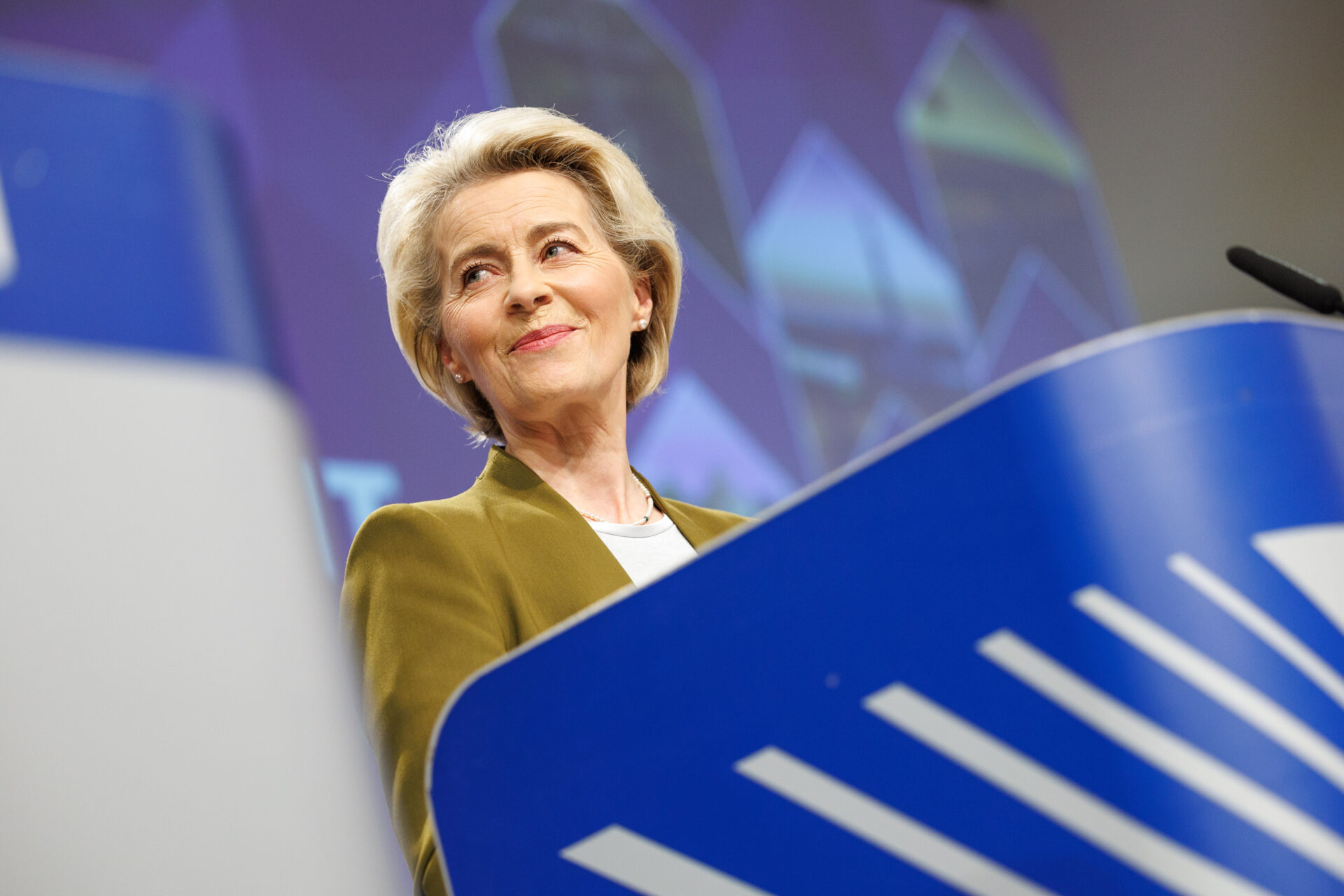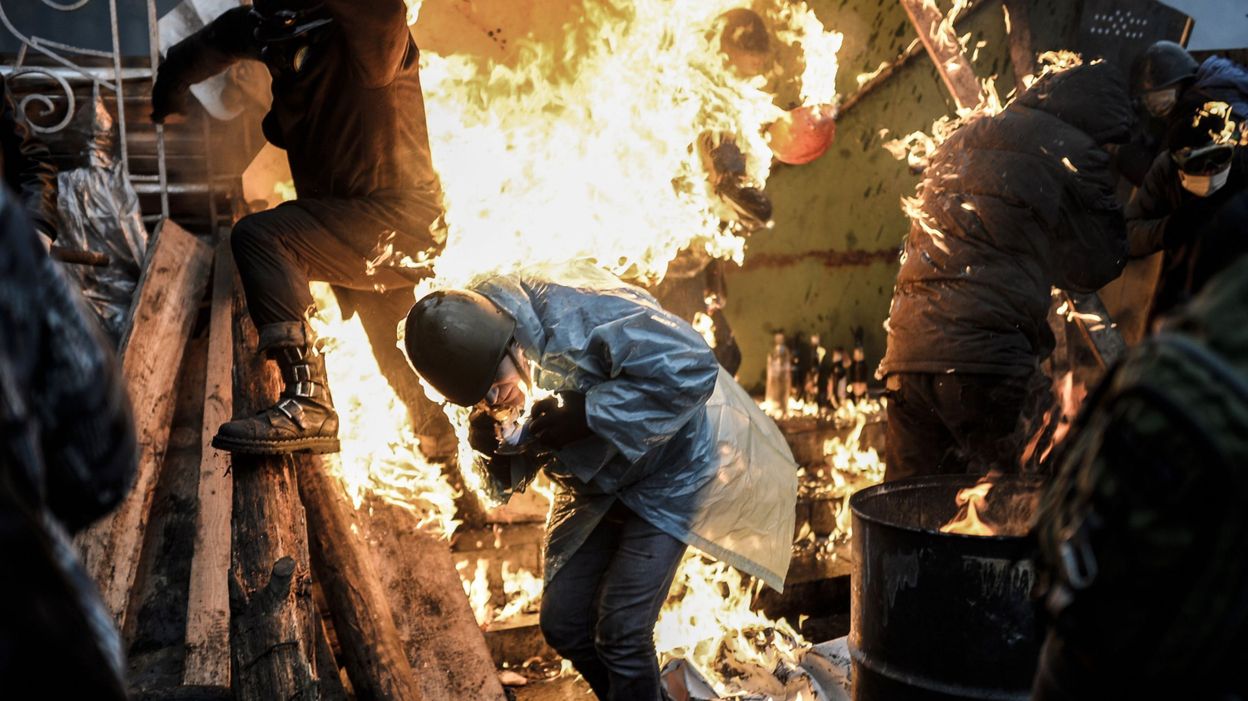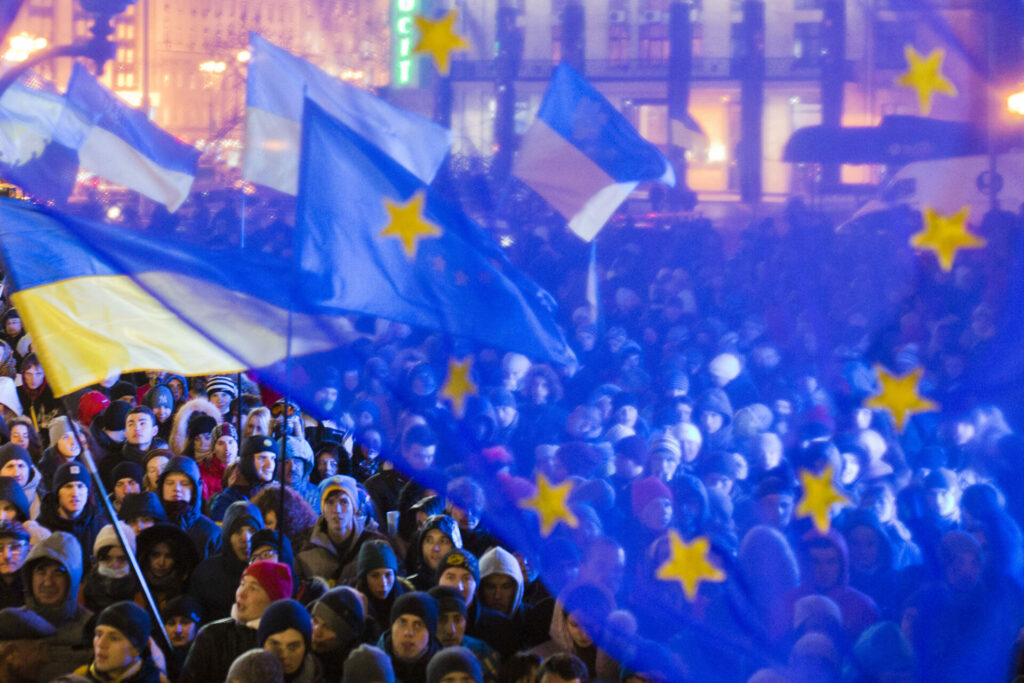Ukraine and Moldova have made sufficient progress to start accession negotiations with the European Union, the European Commission announced on Wednesday.
The EU will now recommend Member States to approve the start of talks, with the final decision expected next month. While this does not mean they are guaranteed accession, Ukraine and Moldova have made up considerable ground in their reforms.
"Today is a historic day because the European Commission recommends the Council to open accession negotiations with Ukraine," President Ursula von der Leyen announced at a press conference. "Ukrainians are deeply reforming their country even as they are fighting an existential war."
Ten years after the protests in Kyiv’s Maidan Square led to the death of over 100 protestors for wanting closer ties with the European Union, Ukraine can now start formal negotiations to become a full EU member, provided that the EU member states will accept the recommendation at the European Council meeting in December.
However, negotiations will not start immediately. Although the majority of the 7 steps the Commission required for starting the negotiations with Ukraine have been completed, and more than 90 % of the actions have been implemented, still some work remains to be done, according to the Commission.
The Commission recommends that the Council adopts the negotiating frameworks for Ukraine and Moldova once they have adopted certain key measures. The Commission stands ready to report to Council by March 2024 on the progress relating to these measures.
Moldova, Bosnia and Georgia
Moldova has also been on the frontline of the negative effects from the conflict, having taken on many Ukrainian refugees and having faced repeated threats from the Kremlin. Since the early 1990s, it also has a Russian-occupied region, Transnistria, which has made EU officials nervous that the Ukraine conflict could spread there too.
"Moldova is not facing a kinetic war but is the subject of constant destabilisation efforts against its democracy, and also suffers the consequence of the war in Ukraine," von der Leyen said, before noting the significant reforms made by the country, particularly in the judiciary to fight corruption and organised crime.

European Commission President Ursula Von der Leyen. Credit: European Union
The EU recognised several positive steps in Bosnia and Herzegovina (BiH), but noted with concern the various "unconstitutional" laws adopted by the Republika Srpska, the Serbian-speaking region which forms part of BiH's three political entities.
Georgia has also improved in some sectors but there is still more to be done. Yet on that note, the Commission is recommending that the Council grants Georgia the status of a candidate country, on the understanding the outstanding issues are addressed.
Ten years since Euromaidan
In her speech, von der Leyen referred to Ukraine’s 2014 revolution which led to the ousting of President Viktor Yanukovych.
In November 2013, protestors took to the streets after the President's sudden decision to backtrack on the signing of the EU–Ukraine Association Agreement, instead choosing closer ties to Russia and the Eurasian Economic Union.

Protesters behind burning barricades in Kyiv. Credit: Belga
"It is now ten years ago that the protests on Maidan started. Maidan protests where people were shot because they wrapped themselves in a European flag," von der Leyen said.
Indeed, over 100 people were killed at the hands of security forces amid allegations of Russian involvement in the violence. The events would set the scene for Russia’s annexation of Crimea in 2014, the pro-Russian separatists war in eastern Ukraine that year and the full-scale Russian invasion in February 2024.
The speed in which Ukraine and Moldova have climbed up the EU accession ladder would have been unthinkable before Russia's invasion.
A few months after the start of the war, in June 2022, Ukraine received candidate status. The Commission had attached seven steps for Kyiv to strengthen the rule of law and tackle widespread corruption to reach the next stage.
For a summary of the Commission's assessments and recommendations for the candidate countries including Turkey, click here.

